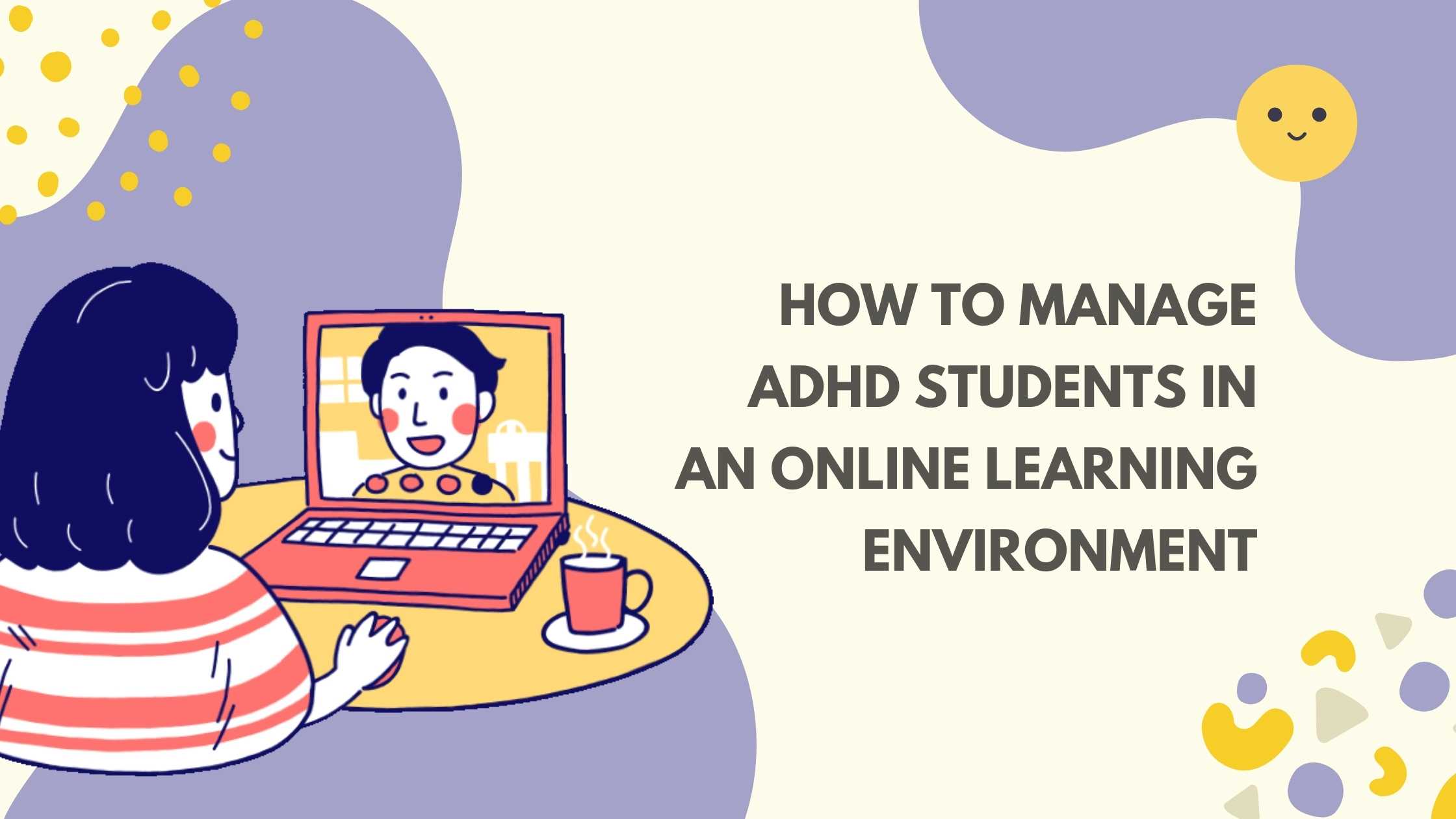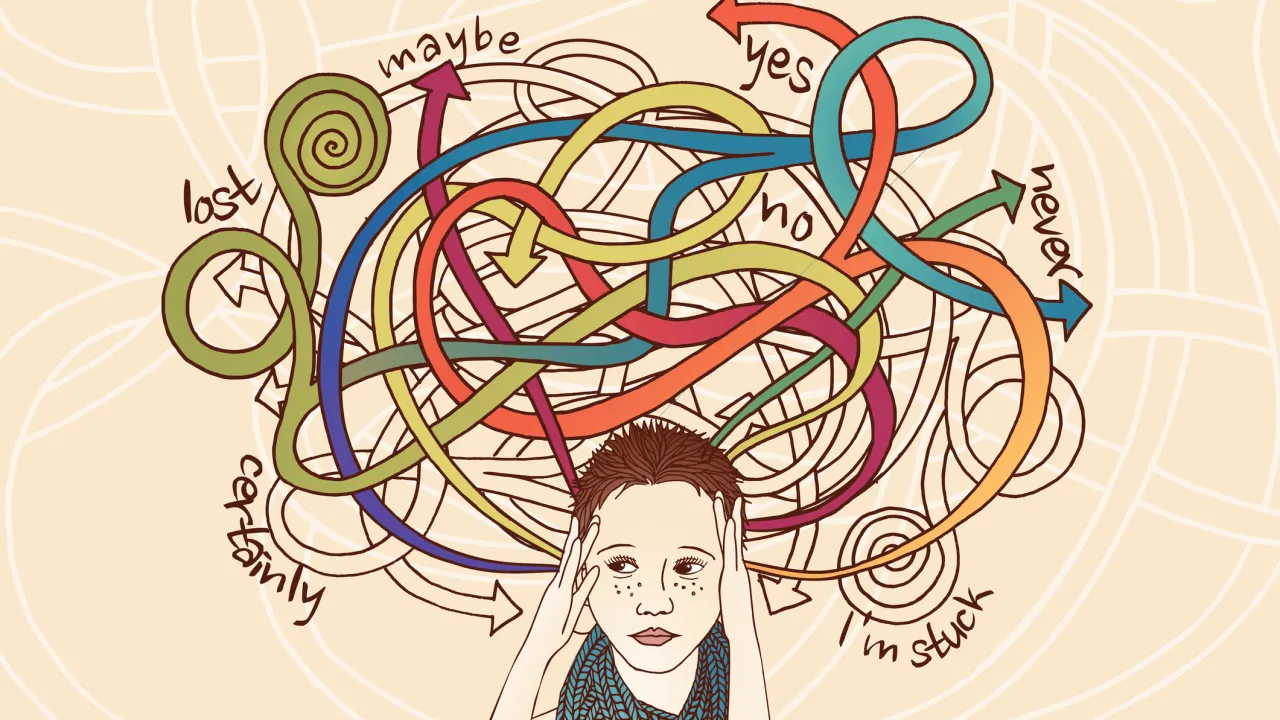

Almost all children have times when their behaviour veers out of control. They display behaviours such as having difficulty paying attention, listening, sitting still, or waiting for their turn, but students with Attention Deficit Hyperactivity Disorder (ADHD) have trouble with these things almost all the time. Students diagnosed with ADHD aren't being this way on purpose. ADHD is a medical condition that affects their attention and self-control. These learners have trouble focusing their attention on a single task or sitting still for long periods of time.
A change in the school environment
Due to the global pandemic, students have been experiencing changes in their learning environment for over a year. Educational institutions have switched from in-person schooling to distance (virtual) schooling, including learning at home and online. In the physical classroom, teachers were able to provide one-to-one support and accommodate students with ADHD who seemed confused, fidgety, and in need of a quick refocus or a prompt-, but many of these signals are lost in translation during the virtual instruction.
Since learning from home is more independent, it requires more focus and organisation, but students with ADHD who already have difficulties with attention regulation, hyperactivity, and impulsivity struggle with this new expectation.
Learning, entertainment, and socialising are all happening via screen time right now. This can be particularly challenging for students with ADHD as they are expected to shift gears from online entertainment (e.g., gaming, fun YouTube videos) to academics.
Also read: Role of a Special Educator in Guiding Children with Special Needs
Below is a breakdown of how educators and parents could help students with ADHD to manage the online learning platform more efficiently:
- Set up a distraction-free study space: Online learning could be highly beneficial to minimise disruptions from peers. However, it still allows easy access to the television, video games, computer games, YouTube, social media, and poor sitting posture by sitting on a couch or the bed. Creating a distraction-free and appropriate learning environment will set the student up for success. It is important to routinely check in with the child to boost their focus and attention. In the current scenario, if multiple family members are working from home, consider creating a daily schedule to limit distractions from each family member. Additionally, students with ADHD will benefit from having a study space separate from where they take breaks and unwind at the end of the day.
- Find out how your student learns best and support them: Lessons that are repetitive and long (concept-driven), require a sustained mental effort, are difficult for most kids, but they are especially challenging for students with ADHD who tend to get bored and distracted easily. Intentionally incorporating an element of choice can engage students with ADHD and enable them to sustain attention longer. Keep instructions simple and structured. At the beginning of each class, explain the learning objectives and what is expected of them. Use props, charts, and other visual aids to keep them engaged and help him learn efficiently. Many students with ADHD do well with competitive games or other activities that are rapid and intense.
- Encourage movement and breaks: Regular and impromptu movement, exercise or dance breaks between the lessons can boost the learner’s mood and focus. Research consistently shows that exercise increases the level of dopamine and norepinephrine in the brain. These are two key neurotransmitters involved in controlling the attention system. You can also have some lessons to alternate between passive activities (staring at the computer screen and listening to the teacher) and energetic activities (write the math solution on a sticky note and run to stick it on your fridge). Provide them with opportunities to move about and take regular breaks after the completion of small tasks.
- Maintain a consistent schedule: Consistent sleep will allow students with ADHD to feel more rested and optimise their attention span during the day. Encourage them to wake up and get ready for bed at the same time each day during the school week. With all the additional screen time during online learning, it is essential that the students put away all electronic devices at least an hour before bedtime to increase the melatonin levels in the brain. Students with ADHD highly benefit from having a set routine to help them with organisation and time management. Creating visual reminders like timetables, assignment checklists, meeting IDs and passwords around their study space encourages them to be self-disciplined.
- Create a reward system: Rewards need to be motivating for the student for them to be effective. Therefore, it is important to identify what the child actually wants, by asking them or through observation. Establish a reward system for completing online schoolwork and assignments. Reward systems must be immediate, frequent, and consistent for them to be effective. Often, a reward can take the form of an opportunity to do something they desire, for example-a movie during the week, coloured clothes for the day instead of wearing a uniform, a special activity with mom or dad, junk food pass, etc. Additionally, it is very essential to provide timely feedback and praise the student when they are meeting your expectations or even when they lose focus and want to give up. This can increase their motivation levels and encourage them to do even better the next time.
Go the TABIS way. The Aditya Birla Integrated School is one of the top integrated or special schools in Mumbai
This is the new normal for now. Therefore, in these constantly changing times educators, students and parents must take measures to adapt, in the best possible way, with the tools and strategies that are available. While we can’t smoothen out the ocean of challenges altogether to provide an ideal learning experience in a pandemic, we can find ways to ride out the waves together, to provide the best educational experience for the students we possibly can. With patience, effective strategies, and extra compassion, students with ADHD can find their groove and confidence with remote learning too!
Author: Khushnavaz Bhathena
Teaching Faculty – Junior School, The Aditya Birla Integrated School
Find below the contact details of special learning school in Mumbai:
The Aditya Birla Integrated School,
162-164, D.N. Road, Opposite CST Station.
Fort. Mumbai – 400 001.
Contact No.: +91 8828860611
Office Timing: 9:30am – 12:30pm
E-mail: tabis.info@abet.co.in

